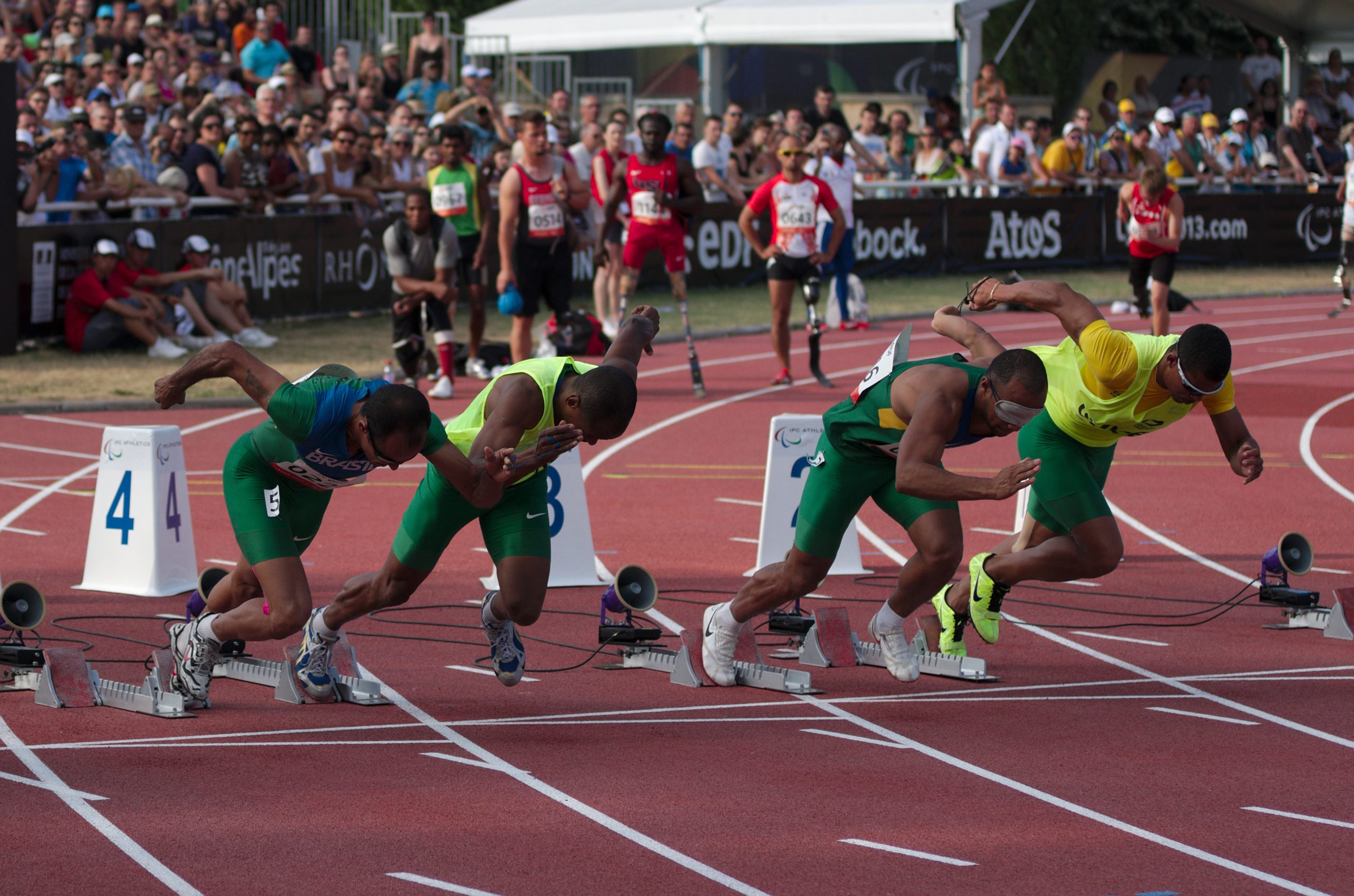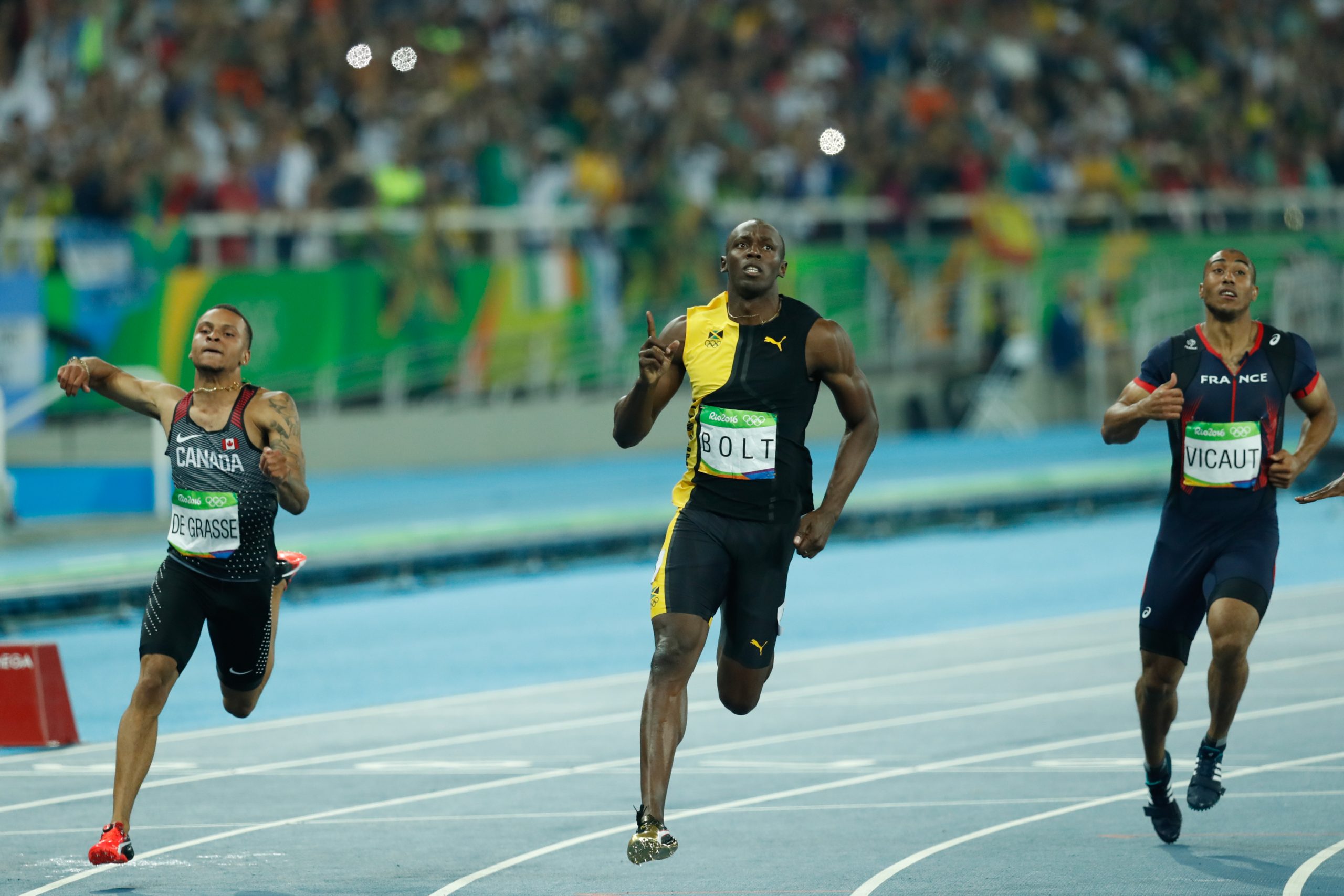At the weekend, Justin Gatlin sprinted to victory in the 100m at the World Athletics Championships, beating fellow American Christian Coleman and the famous Usain Bolt into 2nd and 3rd place respectively. Gatlin received a distinctly frosty response from the crowd however, who booed him as he celebrated his win. This is because Gatlin has a reputation for using performance-enhancing drugs, having previously served two suspensions for failing drug tests in 2001 and 2006.
The headlines about Gatlin’s win were noticeably tainted by his history, with the Telegraph for example running with “Usain Bolt beaten in last solo race as drug cheat Justin Gatlin gatecrashes 100m final”. It goes without saying that, when competing, participants should stick to the rules so that they do not cheat honest competitors out of a win, but the attitude towards people who are caught is as simplistic as it is unforgiving. There were a number of commentators, for example, who claim Gatlin should have received a lifetime ban. To put this in perspective, there are plenty of athletes who have served prison time for offenses such as rape, have come back to sport and enjoyed great success. So, is the treatment of Gatlin proportional or fair?
It has been over ten years since Gatlin last tested positive, with both occurrences being particularly contentious. At 35, he is five years older than Bolt. Now, finally winning the 100m after over a decade in Bolt’s shadow, his moment in the limelight will surely be marred forever. Even Bolt, who has previously spoken out about booing competitors, said of Gatlin after the race: “He is a great competitor. He is always at his best and tonight I wasn’t. He always competes to the end. He is an excellent person.” But rightly or wrongly, people find it surprisingly easy to entirely dismiss everything Gatlin has worked for because of a history of drug use and I don’t believe it is too much of a stretch to suggest that this may be related to how we view people who use drugs in the rest of society – as untrustworthy and criminal.
The rules for doping in sport are strict and athletes are subject to regular testing, but athletes and coaches have also developed sophisticated ways of getting around these tests. Only 2% of athletes fail drug tests but over 1/3 admitted using substances in an anonymised survey conducted in 2011, suggesting that the prevalence of drug use if far higher than the sporting world will care to admit. This situation is comparable to that in prisons, where around 7% of prisoners are tested positive but around 1/3 report drug use in surveys. Realistically, this would be closer to 2/3 given that many people would not admit illicit activity, even in an anonymous survey. In both these environments, there is no appetite to tolerate drug use, yet the rates of use are some of the highest in our society and are arguably the riskier kind of drug use.
The fact is that despite low rates of detection, drugs are rife in sport, but they are used tactically to avoid detection. For example, athletes may take certain substances during training but then leave enough time for them to leave the body before the event. Increasingly, athletes are using New Psychoactive Substances, which are often more dangerous but less easily detected than drugs traditionally used in doping. And because drug use is so commonplace, this places an unspoken pressure on athletes to dope, just to be able to keep up with the others. The detection rate for recent techniques such as gene doping and epigenome doping will be even lower and will be very difficult to stop as these methods develop.
In other words, Gatlin is no different from a vast number of other athletes, and whilst this doesn’t make cheating ok, it makes it more understandable, and also calls into question whether we are even approaching the topic of doping in the right way. Would lifting the ban on certain drugs in sport (or even allowing sports stars to do whatever they like) actually be safer? For one thing, some banned substances only help to reduce recovery time after an injury, whilst others improve overall health.
The ban on doping in sport exists to supposedly create a level playing field, but sport is inherently unfair. Some have wealthier backgrounds and can afford to be coached from an early age, whereas others can’t. Remember Eric the Eel from the 2000 Olympics who qualified in his heat with an unprecedented slow time? He was Equatorial Guinea’s first swimmer to compete in the 100m freestyle. He had never seen an Olympic-sized swimming pool before he arrived in Sydney, had only taken up swimming eight months before and had been training in a lake. Meanwhile, people can become Olympic medal winners in sports like rowing and dressage, when such sports are really only available to the wealthy.
Not only that, but all of us are genetically unequal to start with. Some people are taller than others, so have a longer stride helping them to run faster, whereas a petite figure is often advantageous for women in gymnastics. Long distance running is usually dominated by people from East Africa, whose lower legs are thinner and weigh on average 400 grams less than those of Danish athletes, which translates into an eight percent energy saving. Other people have genetic disadvantages – for example, one in five Europeans cannot produce the alpha-actinin-3 protein found in fast-twitch muscle fibres, which aid in sprinting. We already accept that it is completely unfair to pit men and women against each other (hence separate divisions) and certain sports have different weight categories, but this is just the tip of the iceberg in terms of how people can have a genetically-determined physical advantage over others in sport. Then when you consider that drugs, despite the ban, are rife in the sporting world, having a great team behind you helping you skirt the rules certainly helps your performance.

Lance Armstrong had his seven Tour de France wins voided for long-term drug offenses (Source: Wikimedia Commons)
In other words, it’s not as black and white as drug-free sport is fair and sport with drugs is unfair. Take EPO for example, which is a hormone that is used to stimulate red blood cell production, as an alternative to blood doping (injecting extra red blood cells). Some people, like the cross-country skier Eero Mäntyranta, naturally have a higher red blood cell count due to a genetic mutation, and there are also “natural” ways to increase your count, such as training at high altitude or sleeping in a low oxygen tent, both of which are no safer and achieve the same effect. The current ban on EPO therefore gives an advantage to people with a natural high red blood cell count or people who can afford to train at a high altitude.
What is important to consider is that having a red blood cell count that is too high can increase the risk of heart attack or stroke, perpetuated by the dehydration from physical exertion – and really that is the main concern, not how people get to that point. Michael Le Page wrote in the New Scientist: “Doping authorities allow athletes to compete no matter their blood cell concentration, as long as it’s not due to doping. So, its fine for athletes to risk death, as long as it’s a natural death”. If this discussion were really about the safety of athletes, a maximum blood cell count could be enforced where people with a count too high, regardless of how it got to that point, would not be allowed to compete.
Perhaps as an alternative to drug tests, we could bring in a variety of health tests to ensure that athletes were not using drugs in a risky way. This has been suggested by Julian Savulescu at University of Oxford and Bennett Foddy at University of Melbourne. Savulescu argues that it would be fairer to set a maximum permissible red cell count based on safety and let athletes boost their red cell count by any safe means – including by injecting the hormone EPO.
To use another example, basketball players such as Pavel Podkolzin and Sun Ming Ming owe their height to pituitary tumours that resulted in excess growth hormone. So, if a skilled but shorter basketball player took growth hormones to equal these players with a natural advantage, should they be disqualified from taking part? People sometimes attribute their disdain for doping to hating “short-cuts”, but is being very tall not a “short-cut” to being a better basketball player, as it requires no skill or training but drastically improves performance?
Quite apart from this ethical argument about fair play and athlete safety there is a pragmatic argument for allowing certain, currently banned, techniques. Gene doping involves inserting DNA into parts of the body for the purpose of enhancing athletic performance – something that is pretty difficult to detect or stop. In the not too distant future, we could be using gene therapy to boost the strength of muscles and the only way to detect such modifications would be to remove a slice of muscle from an athlete (which is obviously an unreasonable ask). More subtle gene editing techniques are being developed right now which would be even more difficult to detect.
Lee Sweeney of the University of Florida, who is developing gene therapies for muscles, has said that it would be wrong to stop athletes having a treatment like this. “I think it’s unethical to withhold from someone something that would actually allow their muscles to be much healthier now and in the future,” he told the BBC in 2014. In a way, it is ironic that someone like Oscar Pistorius was allowed to compete in track events with artificial limbs shown to be advantageous in running, but someone who tries to slightly improve their actual limbs would be disqualified.
Having said all this, legalising drugs in sport is slightly different from legalising drugs in general society, the latter of which would almost certainly reduce harms but the former is less clear. Tolerating drug use in sport would actively encourage use and increase the incidence of it, as doping would be the “new normal”. Anyone who wants to stand a chance in their chosen sport, would have to take part as they would be at a distinct disadvantage without it. Do we really want to force athletes to accept health risks to be competitive in their sport? Well, perhaps it doesn’t have to be that way.
You would have to carefully consider which drugs and which techniques were to be allowed, as some are healthier and safer than others. Certain gene doping techniques for example, can decrease the risk of injury etc and be beneficial to your health. What’s more, if health tests were put in place there would be some protection from using drugs at the expense of your body. Although if only some drugs are allowed, there is an argument that this would just move the goalposts – everyone would now use the legal techniques and so, to get an added advantage, athletes would then stoop to using the riskier, banned techniques as well.
There is also the very legitimate argument that allowing doping in sport and actively endorsing it sends completely the wrong messages to young people who want to enter a sport. Whilst professionals would have a team to make sure they dope in a safe, healthy and productive way, many would not be that lucky and end up ruining their health to try and get into the sport. People who already push their body to the limits could be putting themselves at risk.
Finally, we have to consider what we really want from sport. Something that none of this takes into consideration is that perhaps sport for us is partly about that genetic advantage, mixed with hard work and training of course. If genetic doping was allowed for example, would it become more about the team of scientists and engineers that “create” a person rather than the person themselves? Would it mean that anyone could try their hand at being an Olympic athlete and in doing so, devalue what it means to be a champion? These are crucial factors to think about, but I will put my head above the parapet and say that if we did decide to allow drugs in sport, perhaps with two categories for everything – with drugs and without drugs, that people would likely not refrain from watching the sport that allows drugs.
The discussion of doping is by no means a simple one, despite what sporting institutions and the media like to imply. Whilst Gatlin’s public shaming is understandable, given how people feel about cheats in general, I would argue that his doping says more about our current system than it does about him as a person. As many within the sporting world have implied, most athletes bend the rules at times, Gatlin was just unlucky enough to get caught.
Words by Abbie Llewelyn. Tweets @Abbiemunch


